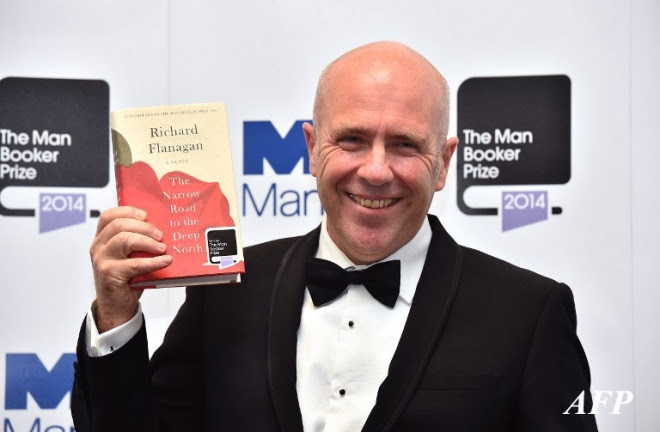Novelist Richard Flanagan has won the Man Booker Prize for his book "The Narrow Road to the Deep North", inspired by his father's experience as a prisoner of war.
The book tells the story of Dorrigo Evans, a surgeon imprisoned in a Japanese work camp on the Thailand-Burma railway.

"The two great themes from the origin of literature are love and war: this is a magnificent novel of love and war," said academic AC Grayling, who presented the award at a glitzy ceremony in London's Guildhall on Tuesday evening.
"This is the book that Richard Flanagan was born to write."
Flanagan is the third Australian to win the prize, which includes a trophy and an award of £50,000 ($80,000, 63,000 euros).
The author of "The Sound of One Hand Clapping" (1998) and "Wanting" (2008), Flanagan said the idea of the so-called "Death Railway" had influenced his life.
"As a child, my father taught me the Japanese words 'san byaku san ju go'. It was his number, 335, that he answered to as a slave labourer of the Japanese on the Death Railway," Flanagan said.
"It was, I guess, a strange mystery. Occasionally I glimpsed what that enigma might be in laughter, a grimace, a hand momentarily tensing on my shoulder, or the recited lines of others. After many years, I discovered it was also me.
"And so I am a child of the Death Railway. I am a writer. And sometimes it falls to a writer to seek to communicate the incommunicable."
Flanagan worked on the novel for 12 years, and his father died the day that it was finished.
The Australian left school at 16, before later winning a scholarship to the University of Oxford in England, where he completed a Master of Letters degree and worked as a river guide. He initially wrote history books, before switching to fiction.
The Man Booker prize, which began in 1969, guarantees a huge upsurge in book sales and a worldwide readership, and being shortlisted isitself considered an accolade.



